En el sitio web del Foro Económico Mundial se encuentra un artículo muy interesante que habla sobre el potencial de la Realidad Virtual para la educación (https://www.weforum.org/agenda/2021/05/virtual-reality-simulators-develop-students-skills-education-training/)
Entre las conclusiónes tenemos.
- Virtual Reality training is becoming more common in teaching.
- VR offers the advantage of providing students and teachers with a standardized, reproducible environment for repeated and optimized training.
- A study in VR training has shown it is more effective than traditional teaching at developing technical, practical and socio-emotional skills.
- The study also found students who complete VR training reported 20% higher levels of confidence after completing their courses.
In some educational fields, the development of adequate cognitive, technical, and socio-emotional skills remains a challenge for trainees and their tutors, partly because of the limited availability of hands-on training or access to appropriate content and learning situations. Even before the pandemic, it has become particularly challenging for education systems to supply learning opportunities that provide students with hands-on pedagogical experiences necessary to develop practical skills, especially for programs that require the use of laboratories. As a response, educators are starting to rely on VR simulations to develop learning experiences that would otherwise not be easily accessible to students. VR simulations can provide students with practical training opportunities without pressure, danger, and allowing for repeated opportunities to practice. Also, VR simulations can provide students access to situations and learning environments (such as traveling within a cell, simulated scenarios for public speaking, among others) that would otherwise be very difficult or impossible to access. Such opportunities can accelerate students’ learning curve in a simulated environment, reproducing real-life conditions and situations without time or space limitations and much fewer risks than real environments.
Virtual Reality training offers many pedagogical advantages
VR simulations offer the great advantage of providing students and teachers with a standardized, reproducible environment for repeated and optimized training. VR simulations allow gamification, performance metrics, and collaborative features (using avatars) embedded in the software, enabling continuous peer interaction, active learning, enjoyment, and performance feedback – all elements that enhance proficiency-based training. Constructivism is often cited as one theoretical framework that supports the implementation of learning in virtual environments. Constructivism suggests that students learn by constructing knowledge and incorporating it into their existing knowledge structure. Thus, constructivist learning environments can increase active learning, motivation, interactivity, and personalized learning. VR simulations can be conducive to higher student motivation and presence, two channels through which VR training simulations can influence student learning. As a result, VR simulations have been regarded as a pedagogical method with the potential to increase student learning.
Is Virtual Reality training successful at developing student’s skills?
A recent study, supported by the Korea World Bank Partnerships Facility, provides a systematic review of the extent to which VR training can successfully develop students’ skills across different education fields [Meta-analysis assessing the effects of virtual reality training on student learning and skills development]. The study relies on a review of 92 different experiments that assess VR training effects on student learning through robust evaluations. Figure 1 presents descriptive statistics of the experiments included in the study. Most experiments were conducted in higher education settings in topics related to health and safety and virtual labs for engineering, science, and technical education.
